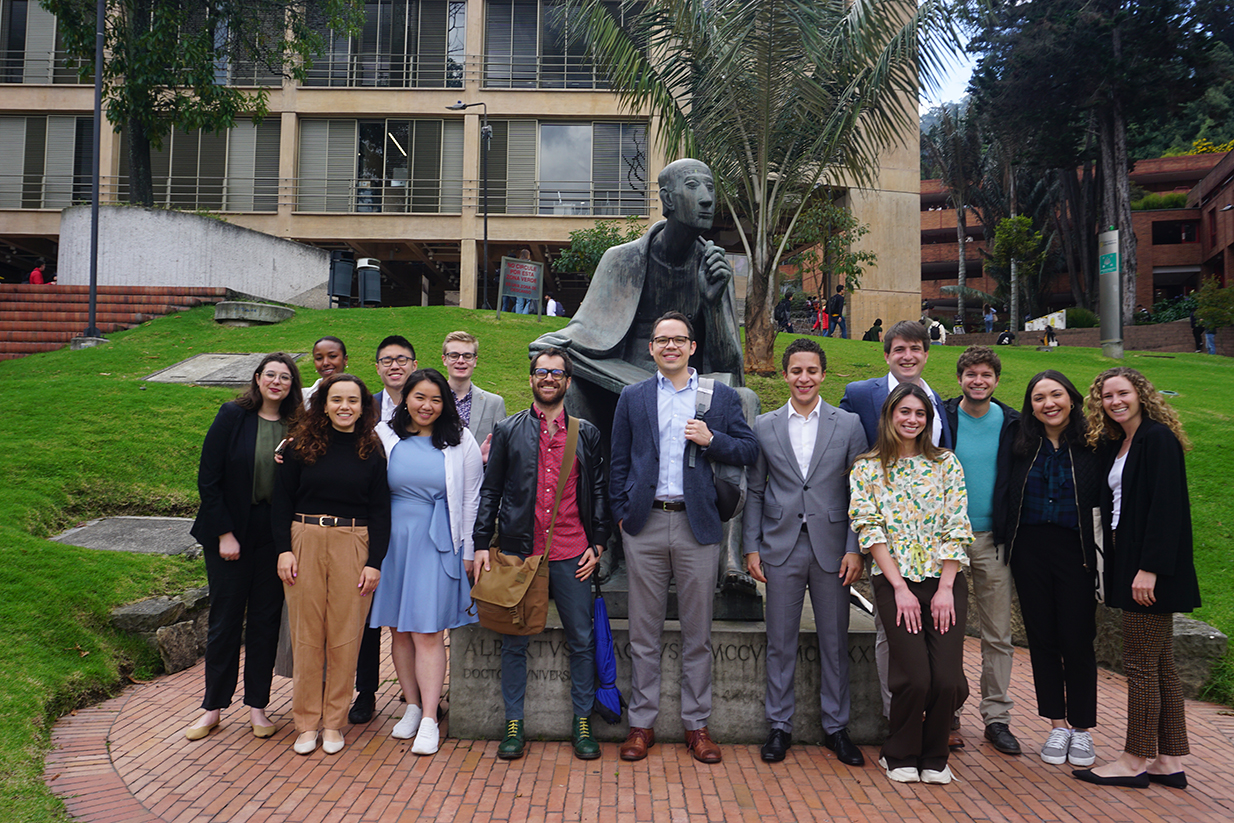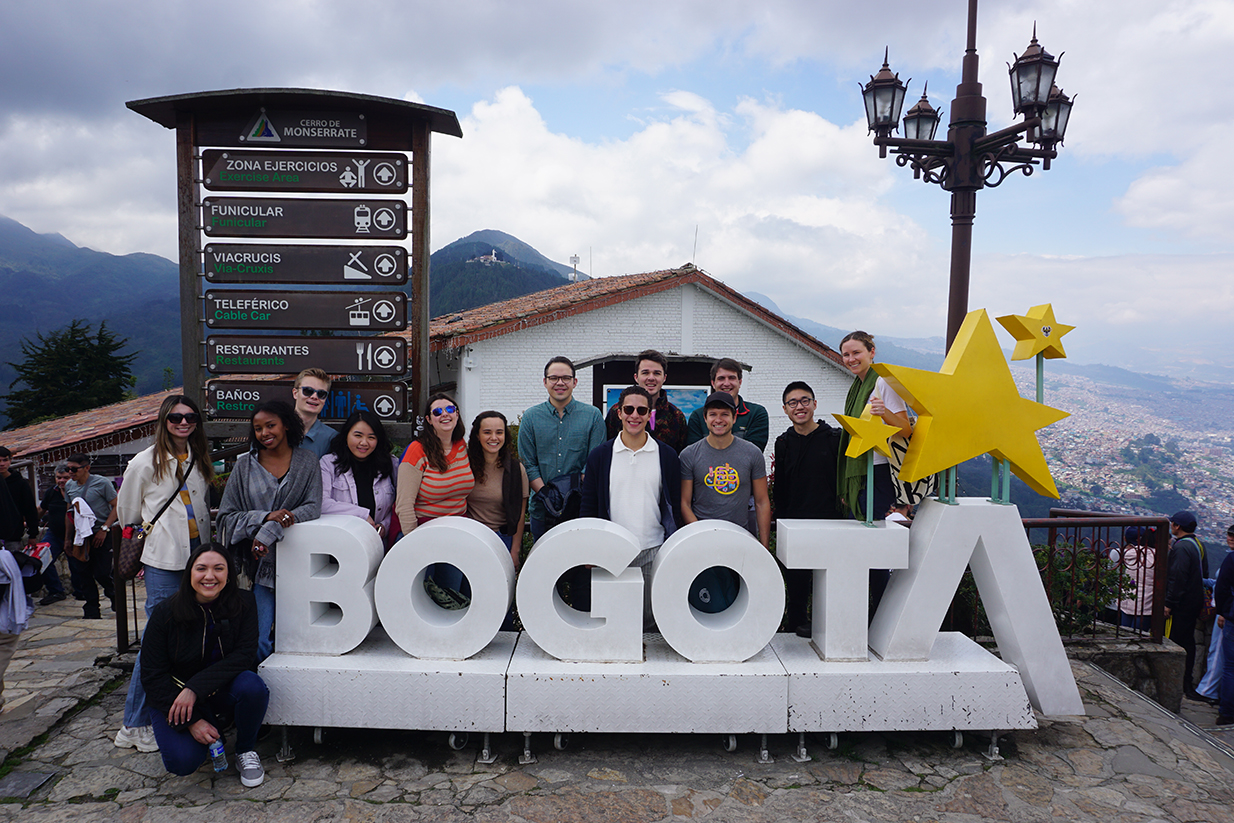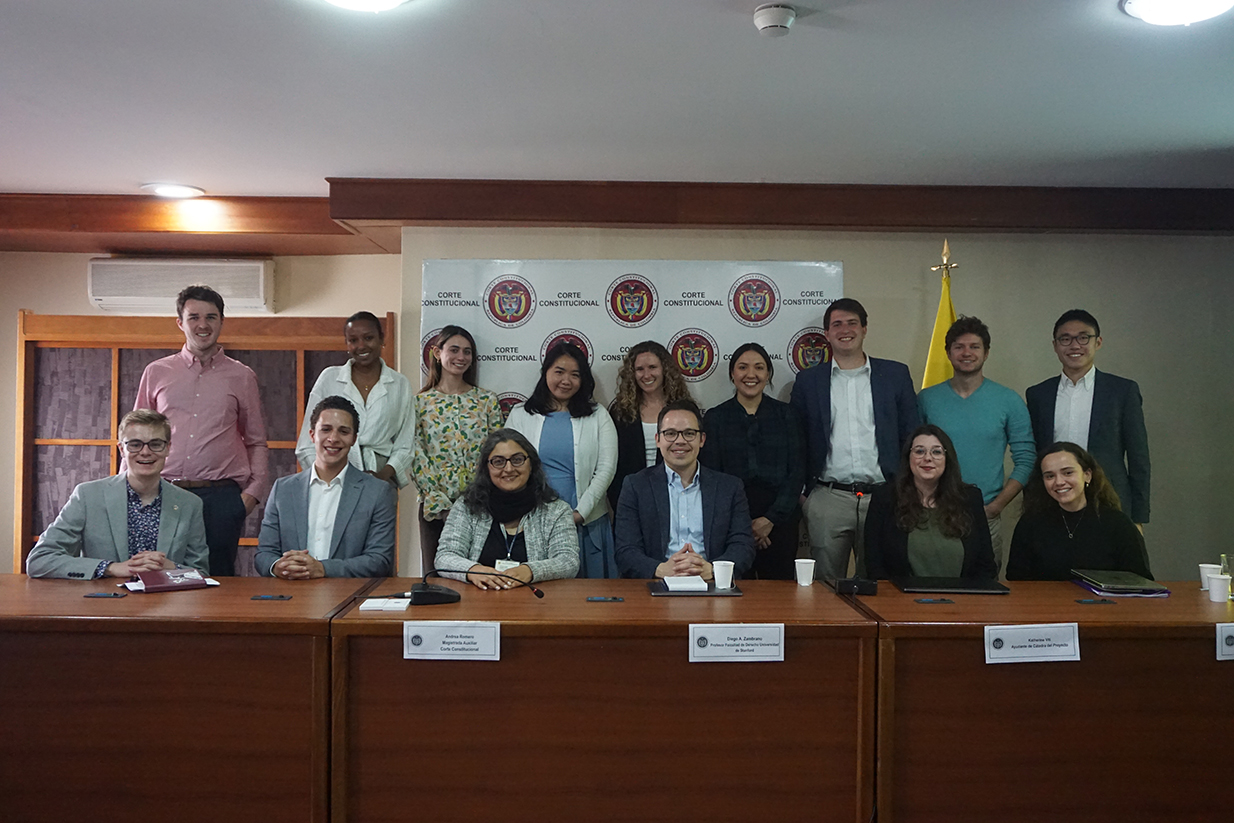SLS in Colombia
Motivation
The past decade has been defined by democratic backsliding and the reemergence of authoritarianism around the globe. Freedom House marked 2021 as the 18th consecutive year of global democratic decline, exacerbated by the COVID-19 pandemic, increasing polarization, and rising inequality. In the face of such trends, what role can a healthy, independent judiciary play in halting the rise of anti-democratic leaders and preserving the rule of law?
Policy Lab
Students enrolled in the policy lab Global Trends in Judicial Reforms had the opportunity to investigate answers to this question by conducting comparative research on 21st century judicial reform efforts. Which nations have pursued innovative new strategies to improve the functioning of their judiciaries? Topics for research included advances in judicial independence, vetting, appointment mechanisms, balance of power structures, constitutional review, access to justice, and other factors affecting the rule of law.
Research Trip to Colombia
Students in past versions of the lab had identified Colombia as potentially a successful model of judicial reforms. Therefore, in 2023 the lab culminated with a field research trip to study reforms in Colombia. There, a team of Stanford law and university students engaged in qualitative interviews with judicial scholars, judges, representatives from NGOs, justices, and legal experts to assess tradeoffs and prioritize options across different adjudicatory models.
Goal
The goal is to create a Judicial Reform Database that will provide broader context for recommendations and hopefully serve as an informative, lasting compendium for future scholars. Reports include case studies on judicial reforms in a country and literature reviews of a particular area in judicial reforms.
The Global Trends in Judicial Reform Policy Lab has been the most enriching experience of my time at Stanford. Interviewing judges, ranging from the District Court to the Constitutional Court, about judicial reforms provided me a unique opportunity to broaden my horizons and develop a skillset beyond what is taught in the classroom.
Hector Reyes, JD '25



The opportunity to engage directly with institutions and individuals dictating how the law operates is invaluable. Law school has always felt intellectually exciting, this policy lab rooted that excitement in practice and impact.
Rawan Dareer, JD '25
Courses
I don’t know of another school doing what Stanford has done through the Neukom Center for the Rule of Law. As students in the judicial reform policy lab, we spent months researching courts and talking to judges from around the world about what works and what doesn’t in promoting the rule of law. We traveled to Colombia and spoke to dozens of judges there in Spanish, in their chambers, in real time to collect lessons learned on judicial reforms. And under the direction of Professor Zambrano we are building relationships with judges who visit us here on campus. Not only was being part of the project an eye-opening educational experience, but I am confident that our toolkit will be useful for judges and practitioners alike for the foreseeable future.
Hank Sparks, JD '25
